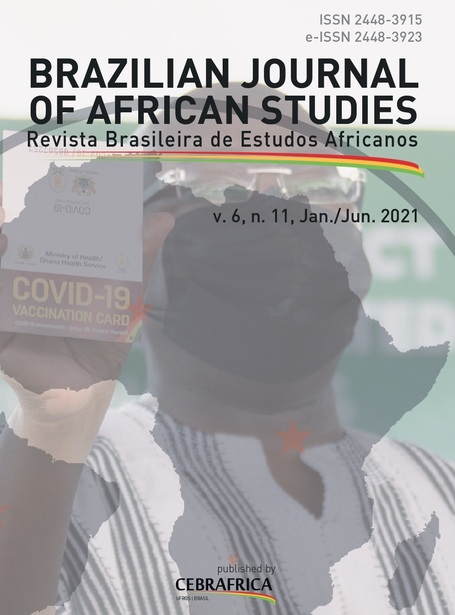REGIONAL INEQUALITY AND THE PERSISTENCE OF POVERTY IN MOZAMBIQUE, EXPLAINED FROM THE PERSPECTIVE OF THE VICIOUS CIRCLE OF POVERTY
DOI:
https://doi.org/10.22456/2448-3923.105168Keywords:
Inequality. Public Policies. Poverty. Vicious Circle. Mozambique.Abstract
This paper aims to analyze how regional inequalities negatively influenced the effectiveness of poverty reduction policies in Mozambique in the period 2001-2014, using the Vicious Circle of Poverty principle advocated by Myrdal. Thus, access to employment, education and health opportunities in different regions and provinces were adopted as central variables to measure these inequalities. To this end, it was assumed that inequalities in access impact the effectiveness of the policies adopted to reduce poverty, being less effective where there are more inequalities in access and more effective where there are fewer inequalities. It was found that the provinces with the greatest inequalities had a lower response to poverty reduction policies, among them those of the northern region (Niassa, Cabo Delgado and Nampula) and two of the central region (Zambezia and Sofala). In this sequence, all those in the southern region (Inhambane, Gaza, Maputo Province and City) had relatively a greater response to policies. However, the only province that found no explanation in the Vicious Circle of Poverty was Tete. Finally, in terms of policy alternatives, it was suggested to focus on promoting education and health and increasing agricultural productivity by public investment in agricultural infrastructure and technology transfers to the most unequal provinces, in place of policies that give equal weight to regions or provinces.Downloads
Download data is not yet available.
Downloads
Published
2021-08-27
How to Cite
Libânio, G., & Castigo, C. J. (2021). REGIONAL INEQUALITY AND THE PERSISTENCE OF POVERTY IN MOZAMBIQUE, EXPLAINED FROM THE PERSPECTIVE OF THE VICIOUS CIRCLE OF POVERTY. Brazilian Journal of African Studies, 6(11). https://doi.org/10.22456/2448-3923.105168
Issue
Section
Articles
License
The author will hold copyright over the published articles and retain publishing rights.

Brazilian Journal of African Studies is licensed under a Creative Commons Atribuição 4.0 Internacional.


